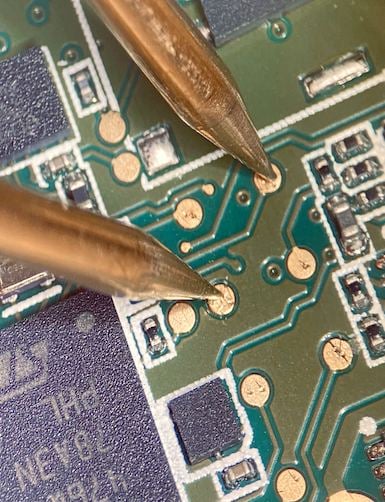When a product is manufactured, it should perform as designed, and be built exactly as specified by engineering drawings with exactly the materials called out. However, this isn’t always what happens. History is replete with stories where something expensive and catastrophic happened with an engineered product due to either errors or intentional corner-cutting during manufacturing. SpaceX, a US-based commercial space launch company, lost hundreds of millions of dollars due to an accident with a rocket used for a re-supply mission to the International Space Station (CRS-7) in June of 2015.
The root cause was eventually identified as a strut used in many places throughout the vehicle. This particular strut failed at a load five times lower than the designed load for the part – obviously, the part was defective. However, the problems were not obviously visible to the eye. During the investigation and implementation of remedial actions, insufficient quality-control (QC) leading to approval of defective parts was identified as a root cause of the failure. In addition to redesigning the part, the addition of physically testing every single strut before use was implemented to catch defective parts.
In another, much less serious example, BES recently received a large bunch of brass pipe fittings for use in a customer project. These were tee fittings, with three threaded holes in each part. They are a standard off-the-shelf product and are produced in huge quantities. However, one of the parts had an obvious problem – one of the three holes was missing! An obvious QC failure, but it slipped through and was sold to a customer (BES) nonetheless.


In production of any engineered product, especially one whose performance has human safety or large cost implications, implementation of a rigorous quality control management (QCM) program is essential. Otherwise, who is to say that what comes off the manufacturing line is going to function as intended? What is to stop an unscrupulous vendor from switching from a high quality material to a less expensive one and pocketing the difference while leaving the customer stuck with substandard product? The QC team, that’s who.
QC generally involves the following:
- Are the materials used in construction correct? Are certifications (if needed) valid?
- Do the manufactured parts conform to the design? IE, are bolt holes the correct size and in the correct locations?
- Is the assembly being performed correctly? Are all bolts torqued to the correct values in the correct order? Are all electrical connections correctly soldered?
- Is any functional testing prior to ship being performed correctly? Are the results changing over time, suggesting variations in the manufacture or assembly process?
- How are the above verified and tracked?
Implementation of a high-quality QC system is frequently overlooked by organizations intending to sell a product in the market. This is because it is just about the least exciting part of making products, and it is almost always expensive to implement and monitor. However, it is nearly always vastly more expensive to have to recall a product or deal with reputational impacts due to failed or noncompliant product. There is hope: this is a problem that has been solved successfully by many people.
The most widely-adopted QCM system is the ISO 9001 standard, which lays out detailed procedures and requirements for establishment and maintenance of a QCM system. The standard does not require external audits for compliance, but many companies who maintain ISO 9001 obtain independent audits in order to be more credible and to help catch problems before they occur. If strong quality control and guaranteed performance are a concern, one can do much worse than to engage an ISO-compliant manufacturer who is under external audit and certification.
BES has experience in identifying and evaluating QCM systems in place at contracted vendors. In the case of an ISO-compliant vendor, BES will either contact the auditing agency for verification or request to review the internal compliance documents at the vendor. For vendors on other QCM systems, BES relies on the broad experience of its engineers, who have worked in both mass production of commercial products and the tightly-controlled environment of rocket engine manufacturing. In the case of a quality problem, BES engineers are highly capable of investigating problems to locate root causes and recommend actions to address them in a timely and cost-effective manner.
Further reading
Overview of the 7 guiding principles of the ISO 9000 QCM
3 Massive QC failures that most people have heard of
Interested in learning more about Boulder Engineering Studio? Let's chat!
Previous Blog Posts
Principles for Developing a Product Test Plan |
Design for Manufacture: Electronics |

|

|
.svg)







